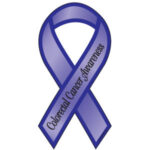 Colorectal cancer is strongly associated with a Western lifestyle.
Colorectal cancer is strongly associated with a Western lifestyle.
Researchers at Harvard Medical School, in Boston, present an overview of the evidence.
Consideration of dietary pattern as a whole appears useful for formulating recommendations.
- Meat, grain, starches, and sugar
- High intake of red and processed meats, highly refined grains and starches, and sugars are related to increased risk of colorectal cancer.
- Replacing these factors with poultry, fish, and plant sources as the primary source of protein; unsaturated fats as the primary source of fat; and unrefined grains, legumes and fruits as the primary source of carbohydrates is likely to lower the risk of colorectal cancer.
- Supplements
- A role for supplements, including vitamin D, folate, and vitamin B6, is uncertain.
- Calcium supplementation is likely to be at least modestly beneficial.
- Lifestyle
- Compelling evidence indicates that avoiding smoking and heavy alcohol use, preventing weight gain, and maintaining a reasonable level of physical activity are associated with markedly lower risks of colorectal cancer.
- Medications
- Aspirin and nonsteroidal anti-inflammatory drugs (NSAIDs), and postmenopausal hormones for women are associated with substantial reductions in colorectal cancer risk, though their utility is affected by associated risks.
The bottom line?
The authors concluded, “Taken together, modifications in diet and lifestyle should substantially reduce the risk of colorectal cancer and could complement screening in reducing colorectal cancer incidence.”
Supplements are often promoted to prevent disease. With respect to preventing colorectal cancer, researchers from Uniwersytet Przyrodniczy w Poznaniu, in Poland reviewed experimental laboratory studies and concluded that traversing the laboratory into clinical medicine is often frustrating, because very few supplements make the transition successfully.
They conclude, “Although experimental studies have clearly demonstrated their anticancer activity, not many clinical trials have provided satisfying results [with dietary supplements], not only because of the lack of efficiency of the chemopreventive agents, but also due to the lack of precise biomarkers monitoring their effects on colon cancer.”
This isn’t just a problem for researchers in the field of dietary supplements. Their counterparts in the pharmaceutical industry face similar frustrations at each stage of drug development.
According to the Financial Times, it’s “estimated that for every 12 drugs entering pre-clinical [laboratory] research,… just 1 is submitted to regulators for approval as safe and effective in patients.
6/28/10 18:37 JR